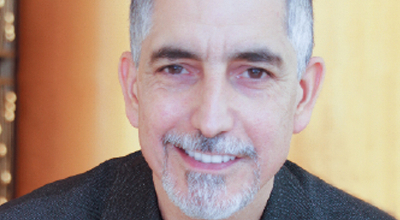
As I have been traveling the world teaching on the kingdom of God in many large Christian leadership conferences, I have noticed something of great concern to me. Since many pastors in Latin America, Europe and North America have come from a Roman Catholic background (or a city with a heavy Roman Catholic religious paradigm), their local church application of the kingdom message reflects this influence.
For example, the Roman Catholic Church, in theory, largely believes that their (Catholic) church is the physical manifestation of the kingdom of God on earth. This is why the pope is referred to as the vicar of Christ or as the prince of the kingdom on earth, representing God Himself as the leader of His church on earth. Hence, the Vatican is viewed as a nation with innumerable riches and her hierarchy has accumulated enormous wealth (its own Vatican Bank), political influence (the Vatican has its own ambassadors to various nations), as well as its own institutions of education, art, music and canon law (church doctrine, councils and legal procedures regarding various situations of applying church law both in church and in secular culture).
Hence, in summary, the Roman Church has its own empire with an enormous subculture in which it (as a religious nation) relates to secular nations and institutions. Thus, the Roman Catholic application of the kingdom of God is extremely church-centric, which leads its adherents (in each parish or diocese) to depend upon their local church to exert religious influence in society instead of obligating non-clergy members in the marketplace to influence culture.
Consequently, this has become the subconscious model for many evangelical pastors in Roman Catholic paradigm cultures, resulting in many senior pastors of megachurches acting like popes to their large congregations and building their own mini-empires! Their (Roman) interpretation of the kingdom has resulted in further empowering a (pope-like) top-down leadership style without processing decisions through a multiplicity of ministers, as well as the use of the kingdom message of cultural dominion to get businesspeople and congregations to donate vast sums of monies to build huge church-centric empires that include banks, shopping malls, businesses, hospitals, schools and many other vestiges of societal institutions.
That is to say, the people in the congregation exist to empower their local church leadership to exert (institutional) cultural influence instead of the biblical model of local church leadership existing to equip the saints for the work of the ministry to exert cultural influence. (Read Ephesians 4:10-12. Verse 10 shows the work of the ministry involves filling up the whole earth for the glory of God. Thus, equipping the saints allows for marketplace activities to be called ministry, not just traditional ecclesial ministry.)
In special instances, I am all for a local church becoming a cultural institution, building shopping malls and starting banks, schools and the like, especially in at-risk communities in which it is difficult to effectively empower individuals economically. However, the key to an effective movement is the distribution of labor.
Thus, I believe the ideal is to see a more decentralized strategy in which the local church exists to empower individual believers to have cultural influence in their spheres so they can maximize their human potential as kingdom experts. This is better than the marketplace leader merely existing to empower the local church in empire building. This (church-centric) kingdom model perpetuates a dualism in which the believer lives a totally secular life in the marketplace because their only duty is to give their tithes on Sunday to empower their local church to fulfill the cultural commission of Genesis 1:28.
This dualism will result in nominal Christianity amongst its membership because believers are not encouraged to learn how to study and pray to apply a biblical worldview to their sphere of influence. (After all, they think, that’s the job of the professional clergy!)
Unless evangelical pastors reject the Roman Catholic template of the kingdom and understand that the church is not the kingdom but only the key agent of the kingdom that exists to equip the saints for the work of the ministry, kingdom preaching in these nations will only continue to empower thousands of mini-popes and mini-kingdoms and limit the work of the kingdom to professional clergy.
Joseph Mattera is overseeing bishop of Resurrection Church, Christ Covenant Coalition, in Brooklyn, N.Y.
Get Spirit-filled content delivered right to your inbox! Click here to subscribe to our newsletter.
Dr. Steve Greene is now sharing stories, teachings, and conversations with guests who lead with love on Love Leads, a new podcast. Listen now.
Dr. Mark Rutland's
National Institute of Christian Leadership (NICL)
The NICL is one of the top leadership training programs in the U.S. taught by Dr. Mark Rutland. If you're the type of leader that likes to have total control over every aspect of your ministry and your future success, the NICL is right for you!
FREE NICL MINI-COURSE - Enroll for 3-hours of training from Dr. Rutland's full leadership course. Experience the NICL and decide if this training is right for you and your team.
Do you feel stuck? Do you feel like you’re not growing? Do you need help from an expert in leadership? There is no other leadership training like the NICL. Gain the leadership skills and confidence you need to lead your church, business or ministry. Get ready to accomplish all of your God-given dreams. CLICK HERE for NICL training dates and details.The NICL Online is an option for any leader with time or schedule constraints. It's also for leaders who want to expedite their training to receive advanced standing for Master Level credit hours. Work through Dr. Rutland's full training from the comfort of your home or ministry at your pace. Learn more about NICL Online. Learn more about NICL Online.


